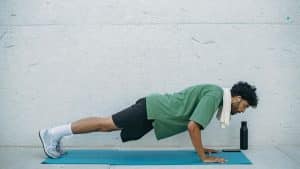Losing weight is one challenge—keeping it off is another. Many weight loss methods promise quick results, but most people regain the weight within months. The key to long-term success is sustainability. This article explores the most effective way to lose weight and maintain it, comparing it to other popular methods to explain why it works best.
The Best Way to Lose Weight and Keep It Off
The most effective approach to long-term weight loss is a calorie deficit combined with high-protein, nutrient-dense foods, increased physical activity, and sustainable habits. This method works because it addresses both short-term fat loss and long-term weight maintenance.
How It Works
- Create a calorie deficit by consuming fewer calories than you burn.
- Prioritize protein and whole foods to improve satiety and preserve muscle.
- Increase physical activity through exercise and daily movement.
- Develop sustainable habits rather than relying on short-term solutions.
Now, let’s compare this method to other common weight loss approaches.
Crash Diets and Extreme Calorie Restriction
How They Work
- Severely limit calories, often under 1,200 per day.
- Rapid initial weight loss due to muscle loss and water weight.
Why They Fail
- The body adapts by slowing metabolism.
- Muscle loss lowers resting metabolism, making weight regain more likely.
- Extreme hunger and nutrient deficiencies make them unsustainable.
Why a moderate calorie deficit is better:
- Preserves muscle while reducing fat.
- Prevents the metabolism from slowing down too much.
Low-Carb and Keto Diets
How They Work
- Reduce carbohydrate intake to force the body into ketosis, where it burns fat for fuel.
Why They Fail for Many
- Many people struggle with long-term carb restriction.
- The initial rapid weight loss is mostly water, not fat.
- Some experience energy dips and cravings, making adherence difficult.
Why a balanced diet works better:
- Allows flexibility while maintaining a calorie deficit.
- Supports long-term adherence without severe restrictions.
Intermittent Fasting
How It Works
- Limits eating to a specific window, such as 16-hour fasting and 8-hour eating periods.
Why It Works for Some but Not All
- Helps with natural calorie control but does not guarantee a calorie deficit.
- Some people overeat during eating windows, negating benefits.
- Can be difficult for those who prefer regular meals.
Why a focus on total calories is better:
- Intermittent fasting works only if calories are controlled.
- A flexible approach allows meals at regular intervals without strict timing.
Weight Loss Pills and Supplements
How They Work
- Claim to boost metabolism or suppress appetite.
Why They Fail
- Most have little proven impact on fat loss.
- Weight often returns once supplements are stopped.
- Some cause side effects such as heart palpitations or digestive issues.
Why diet and exercise work better:
- Whole foods and movement have no negative side effects.
- Scientifically proven to work without dependency on a product.
Cardio-Only Approach
How It Works
- Focuses on burning calories through running, cycling, or other cardio exercises.
Why It Fails for Long-Term Weight Loss
- Does not build muscle, leading to a slower metabolism over time.
- Can increase hunger, which may lead to overeating and negate the calorie burn.
- Requires constant effort, and stopping cardio often leads to weight regain.
Why strength training and daily movement are better:
Why This Method Is the Best for Long-Term Weight Loss
- Strength training preserves muscle and boosts metabolism.
- Non-exercise activity, such as walking, standing, and fidgeting, increases calorie burn without intense workouts.
- Flexible and sustainable, allowing for long-term success.
- Protects muscle mass and prevents metabolic slowdown.
- Balances diet and activity for steady progress.
- Prevents weight regain by focusing on lasting habits.
Conclusion
The best way to lose weight and keep it off is through a calorie-controlled diet rich in protein and whole foods, combined with increased physical activity and sustainable habits. Compared to crash diets, keto, intermittent fasting, and cardio-only approaches, this method is the most effective, science-backed, and maintainable for life.
Read Next…
- Can Exercise Really Make You Smarter and Younger?
- Can Natural Supplements Really Support Hormones?
- Physically Active Careers That Make It Easy To Stay Strong
- Can Fitness Improve Love for Couples Over 40?
- Why Is a Protein Breakfast Important Before Church?
Subscribe now and get a 14-day free trial workout app for iPhone users.






